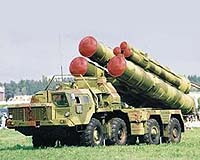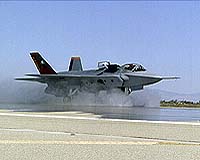The story, he goes out everyday to raise the American flag up the flag pole in his yard, then in the evening he lowers the flag. According to his story, he has always been around the flag, from WWII to Vietnam. That's 3 wars he has been involved with and 3 wars that the flag of the United States has been beside him.
Maybe, just maybe, there should be something in the U.S. Constitution stipulating the right of Americans to display the Flag of the U.S.A. in a manner, which would override a local zoning ordinance or Home Owners Association's (HOA) rules governing how the Flag is displayed.
I can enjoy the fact that we have this many people still remembering what things are great about America. Our men and women who serve in our Armed Forces and the Flag for which they saluted and fought beside. I think the HOA is outgunned and outclassed. But, I can see a future where this may just slip away, quietly after a surrender. ...lakotahope
~~~~~~~~~~~~~~~~~~~~~~~~~~~~~~~~~~~~~~~~~~~~~~~~~~~~~~~~~~~~~~~~~~~~
Col. Van T. Barfoot, the 90-year-old Medal of Honor recipient who refuses to remove his flagpole from his property, speaks out on what the flag means to him.
RICHMOND, Va. -- A flood of help is building for an embattled Medal of Honor winner in Henrico County who was ordered this week to remove a flagpole from his yard by his community's homeowners association.
From the halls of Congress to the 90-year-old colonel's old infantry unit, a local law firm and scores of service members, help is making its way to Col. Van T. Barfoot.
"He said he was outraged and wanted to help," Barfoot's daughter said yesterday, speaking of U.S. Sen. Mark R. Warner, D-Va., who learned of Barfoot's plight on TimesDispatch.com yesterday.
In a five-paragraph letter that he received Tuesday, Barfoot was ordered to remove the flagpole from his yard in the Sussex Square community in far western Henrico County. The decorated veteran of three wars raises the American flag every morning on the pole, then lowers and folds the flag at dusk in a three-corner military fashion.
The Coates & Davenport law firm in Richmond sent a priority-mail letter ordering Barfoot to remove the pole by 5 p.m. Friday or face "legal action being brought to enforce the covenants and restrictions against you." The letter states that Barfoot will be subject to paying all legal fees and costs in any successful legal proceeding pursued by the homeowners association's board.
A Richmond law firm, Marchant, Honey & Baldwin, offered yesterday to represent Barfoot at no cost, partner John Honey said.
In a statement released last night, the association said Barfoot is in direct violation of its board's July decision to deny his request to erect a flagpole.
"This is not about the American flag. This is about a flagpole," the statement reads, noting that many homes in the neighborhood display the American flag.
Margaret Nicholls, Barfoot's daughter, said last night that the statement is using semantics to back up a board decision about the pole that was made on aesthetic, not regulatory grounds. There is no covenant that expressly forbids flag poles, she said.
Warner has known Barfoot for years and has a high regard for him, Warner spokesman Kevin Hall said. "The senator definitely wants to step in to get something resolved."
Nicholls said her father's phone "is ringing off the hook." Members of the 157th Infantry Unit, with which he served, have called along with scores of people concerned about Barfoot's welfare, she said.
Barfoot can't understand why the board allows a flag to hang from an angled pole mounted to the side of a house but disallows a flag flown from a free-standing vertical pole.
"Where I've been, fighting wars, displaying the flag, military installations, parades, everything else, the flag is vertical. And I've done it that way since I was in the Army," Barfoot said.
"Dad sort of feels like this is the end," said Nicholls, who lives a few doors away. But she said yesterday that she and her husband are attempting to generate support for her father's cause, a flag-raising rite that he has undertaken for most of his life.
Barfoot received the Medal of Honor on the battlefield during World War II in Italy and fought as well in the Korean and Vietnam wars. A portion of a highway in rural Mississippi, his native state, was named in his honor this fall. A building at McGuire Veterans Affairs Medical Center, Richmond, also carries his name.
Barfoot regularly began flying the flag on Veterans Day this year, after he returned from an extended trip that began in September, despite the Sussex Square board's decision.
He said last month that not flying the flag would be a sacrilege to him.
"There's never been a day in my life or a place I've lived in my life that you couldn't fly the American flag," he said.
Barfoot's neighbors are split, with some saying that the community covenants should have no exceptions, and that Barfoot was given the community's covenants before he bought the property. Others support him regardless.
Sally Hedleston, whose house has a legal flagpole attached, said she has asked board members to make an exception for the Medal of Honor winner.
"Some board members say that rules are rules -- well, how many of them have broken the speed limit every day here?" she asked.
Contact Bill McKelway at (804) 649-6601 or bmckelway@timesdispatch.com .


















